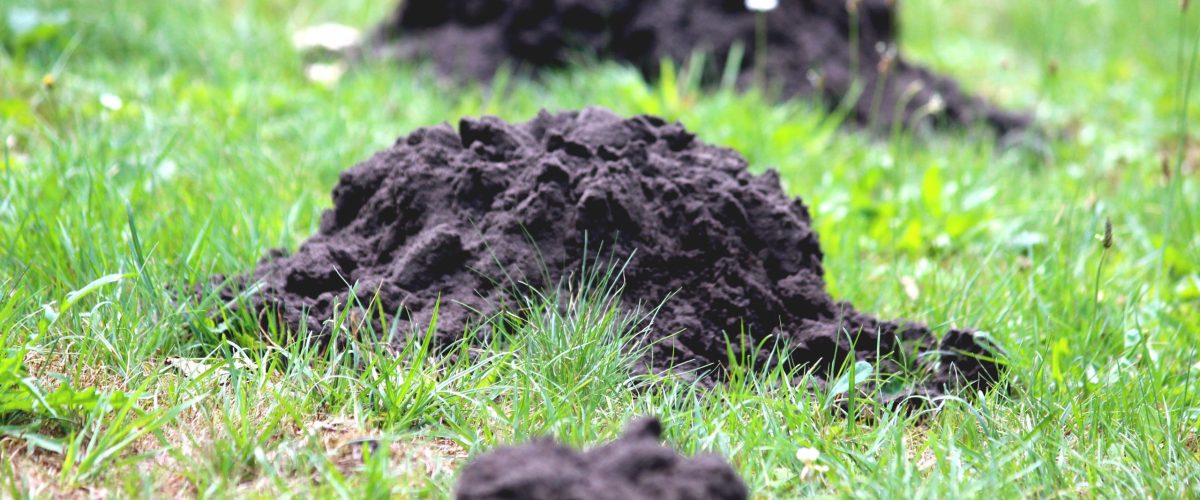In Featured, Pests – North East of England Pest Control
Moles are burrowing creatures, well known for leaving unsightly molehills in gardens and lawns across Newcastle, Sunderland, Durham, and surrounding areas. But what exactly are moles, and why do they create these tell-tale signs of their presence?
What are Moles Like?
Moles are rarely seen by people, as they spend most of their lives underground. These small, velvety animals measure between 11 and 16 cm in length and have tiny eyes, relying on their heightened sense of touch to navigate the darkness. Their long noses are covered in sensitive hairs and whiskers, which detect vibrations in the soil, helping them locate food like earthworms and insects.
Moles are solitary creatures and typically only interact with other moles during the breeding season from February to June.
Why Do Moles Make Molehills?
Molehills are formed when moles dig shallow tunnels just below the surface, particularly in lawns, flowerbeds, and gardens. As they search for food, moles push the displaced soil up through vertical shafts, creating molehills. Since moles are territorial, the molehills in your garden are likely the work of just one mole.

Moles are most active in early winter and spring, creating temporary feeding tunnels. These tunnels can extend up to 70 metres in length and are around 5 cm wide. The deeper tunnels remain below the frost line, allowing the mole to continue its activity even during cold North East winters.
What Damage Do Moles Cause?
Moles might seem harmless, but their tunnelling can cause several problems for homeowners and businesses in Newcastle, Sunderland, Durham, and beyond:
- Damage to Lawns and Gardens: Moles disturb the roots of plants and seedlings, making it harder for them to grow.
- Unsightly Molehills: These need to be cleared before mowing or gardening, adding extra work.
- Unstable Ground: Tunnels create uneven ground with ridges and depressions, posing a minor safety hazard when walking or mowing.
- Reduced Earthworm Population: Moles feed on earthworms, which are beneficial for soil health and plant growth.
How to Prevent Moles in the North East?
Simply patting down molehills won’t stop the problem, as moles are expert diggers and will continue to excavate. The best way to control a mole infestation is to seek professional pest control advice. A trained pest control technician can assess the extent of the issue and recommend the most effective solution.
If you’re in Newcastle, Sunderland, Durham, or any nearby areas and need advice or a quote for mole control, contact PEST-SHIELD for expert assistance.

